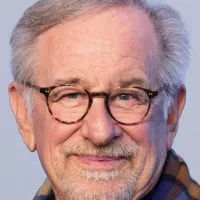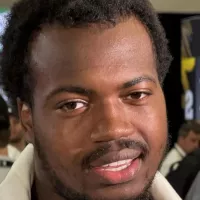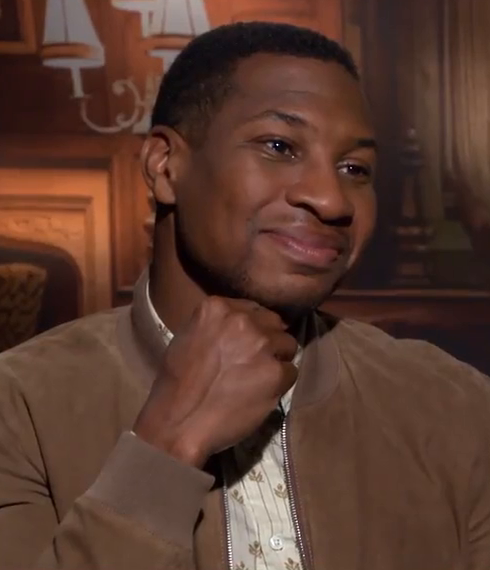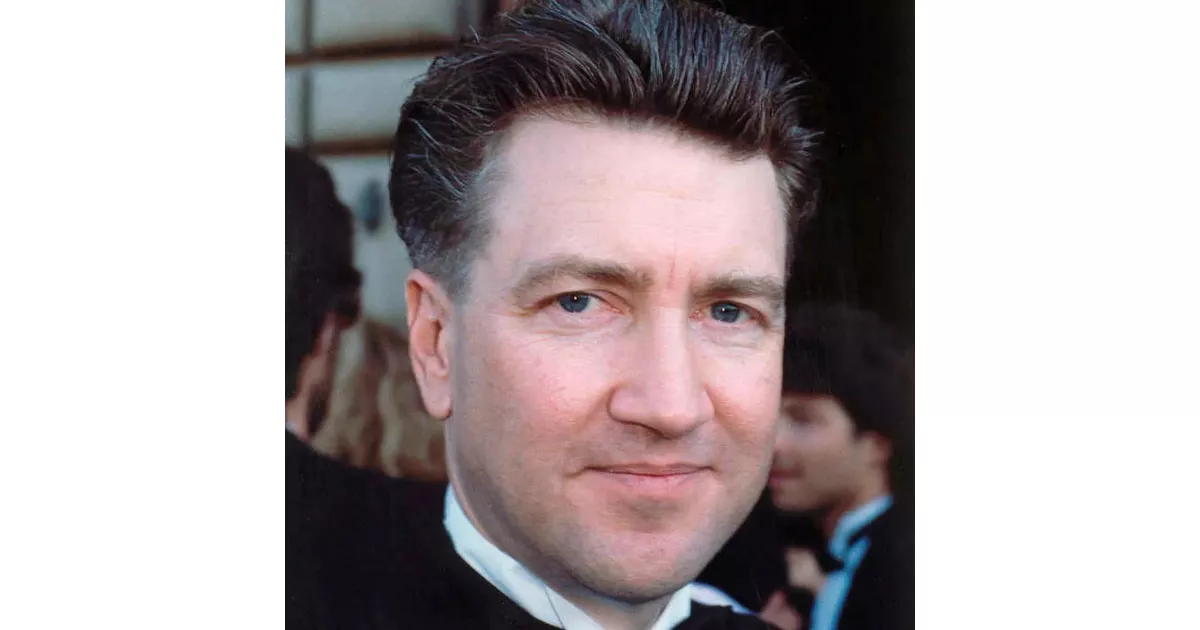Discover the career path of David Lynch, from the first major opportunity to industry-changing achievements.
David Lynch is a highly influential American filmmaker, visual artist, musician, and actor known for his distinctive surrealist style, often described as "Lynchian." His career spanned over five decades, and he received numerous accolades, including a Golden Lion for Lifetime Achievement, an Academy Honorary Award, and a Laurel Award for Screenwriting Achievement. Lynch's films are celebrated for their unique and often unsettling atmosphere and dreamlike narratives.
1967: Creation of Six Men Getting Sick (Six Times)
In 1967, David Lynch made his first short film, Six Men Getting Sick (Six Times), after wishing to see his paintings move. He used a cheap 16mm camera and spent $150 on the production.
1968: Production of The Alphabet
In 1968, David Lynch experimented with a mix of animation and live action, producing the four-minute short The Alphabet, starring his wife Peggy.
1970: Move to Los Angeles and enrollment at AFI Conservatory
In 1970, David Lynch, along with his wife and daughter, moved to Los Angeles and began studying filmmaking at the AFI Conservatory.
May 29, 1972: Filming of Eraserhead begins
On May 29, 1972, David Lynch began filming Eraserhead at night in abandoned stables.
1973: Development of Blue Velvet ideas
Since 1973, David Lynch had ideas that developed into Blue Velvet, set in Lumberton, North Carolina, revolving around a college student, Jeffrey Beaumont (MacLachlan), who finds a severed ear in a field.
1974: Made The Amputee
In 1974, during a break in filming Eraserhead due to financial problems, David Lynch made The Amputee, a one-shot film about two minutes long.
1976: Eraserhead finished
In 1976, David Lynch's film Eraserhead was completed.
1977: Eraserhead Distributed
In 1977, Ben Barenholtz helped to distribute David Lynch's film, Eraserhead around the United States.
1977: Release of Eraserhead
In 1977, David Lynch released his first feature film, the independent body horror film Eraserhead, which gained success as a midnight movie.
1980: Critical acclaim for The Elephant Man
In 1980, David Lynch earned critical acclaim and Academy Award nomination for Best Director for The Elephant Man.
1983: Creation of The Angriest Dog in the World
In 1983, David Lynch began writing and drawing a comic strip, The Angriest Dog in the World, featuring unchanging graphics and cryptic philosophical references.
1984: Release of Dune
In 1984, David Lynch directed the space opera Dune.
1986: Release of Blue Velvet
In 1986, David Lynch released the neo-noir mystery art film Blue Velvet, earning critical acclaim and an Academy Award nomination for Best Director.
1988: Directing The Cowboy and the Frenchman
In 1988, David Lynch directed a short film, The Cowboy and the Frenchman, as part of The French as Seen by..., a series sponsored by Le Figaro.
1989: First One-Man Art Exhibition
In 1989, David Lynch held the first of five one-man exhibitions between 1989 and 1991, highlighting his background in fine art and painting.
1989: Release of Floating into the Night
In 1989, David Lynch produced and wrote lyrics for Julee Cruise's album, Floating into the Night, in collaboration with Angelo Badalamenti.
1989: Creation of Industrial Symphony No. 1
In 1989, while Twin Peaks was in production, David Lynch and Angelo Badalamenti created a theatrical piece, Industrial Symphony No. 1: The Dream of the Broken Hearted, which was performed twice as part of the New Music America Festival.
1990: Wild at Heart Release and Palme d'Or Win
In 1990, David Lynch adapted Barry Gifford's novel Wild at Heart into a film starring Nicolas Cage and Laura Dern. The film won the Palme d'Or at the Cannes Film Festival, though it received a mixed response.
1990: Creation of Twin Peaks
In 1990, David Lynch and Mark Frost created the ABC surrealist horror-mystery series Twin Peaks.
1990: Video Production of Industrial Symphony No. 1
In 1990, David Lynch produced a 50-minute video of the performance Industrial Symphony No. 1: The Dream of the Broken Hearted.
1990: Palme d'Or for Wild at Heart
In 1990, David Lynch received the Palme d'Or at the Cannes Film Festival for his romantic crime drama Wild at Heart.
1990: Wild at Heart Wins Palme d'Or and Twin Peaks is a smash hit
In 1990, David Lynch's Wild at Heart won the Palme d'Or at Cannes, and the television series Twin Peaks was a smash hit with audiences across the world.
1990: Twin Peaks Debut
In 1990, David Lynch's television series Twin Peaks premiered on ABC, becoming a smash hit. The series, set in a small Washington town, followed FBI Special Agent Dale Cooper (MacLachlan) as he investigated the murder of Laura Palmer.
1991: Twin Peaks air dates
David Lynch's television show, Twin Peaks, aired from 1990-1991. In 1991, Lynch received nine Primetime Emmy Award nominations for his work on the series.
1991: Lynch Art Exhibitions
In 1991, David Lynch continued his series of one-man art exhibitions, highlighting his background in fine art and painting. Between 1989 and 1991 he had five exhibitions.
1991: Directing Teaser Trailer for Dangerous
In 1991, David Lynch directed a 30-second teaser trailer for Michael Jackson's album Dangerous at Jackson's request.
1992: On the Air series creation
In 1992, David Lynch and Mark Frost created the comedy series On the Air, which was canceled after three episodes aired.
1992: Release of Twin Peaks: Fire Walk with Me
In 1992, David Lynch co-wrote and directed the film prequel to Twin Peaks, titled Twin Peaks: Fire Walk with Me.
1992: End of The Angriest Dog in the World
In 1992, David Lynch ended publication of The Angriest Dog in the World.
1993: Recording Thought Gang
Around 1993, David Lynch and Angelo Badalamenti recorded the album Thought Gang, but did not release it at the time.
1993: Collaboration with Yoshiki on X Japan video
In 1993, David Lynch collaborated with Japanese musician Yoshiki on the video for X Japan's song "Longing ~Setsubou no Yoru~".
1993: Release of The Voice of Love
In 1993, David Lynch produced and wrote lyrics for Julee Cruise's album, The Voice of Love, in collaboration with Angelo Badalamenti.
April 1997: Presentation at Milan Furniture Fair
In April 1997, David Lynch presented a furniture collection at the prestigious Milan Furniture Fair.
1997: Release of Lost Highway
In 1997, David Lynch directed the neo-noir horror film Lost Highway.
1998: Working on Lux Vivens
In 1998, David Lynch worked on the Jocelyn Montgomery album Lux Vivens (Living Light), The Music of Hildegard von Bingen.
1999: Mulholland Drive Development
In 1999, David Lynch approached ABC with ideas for a television drama that would become Mulholland Drive. The network approved a two-hour pilot, but disputes led to the project being shelved.
1999: Release of The Straight Story
In 1999, David Lynch directed the road movie The Straight Story.
2000: Financing of Twin Peaks: Fire Walk with Me
David Lynch's film, Twin Peaks: Fire Walk with Me, was financed by the company CIBY-2000 in 2000. Despite the financing, the film was a commercial failure in the U.S. at the time of its release.
December 10, 2001: davidlynch.com Goes Online
On December 10, 2001, David Lynch launched his official website, davidlynch.com, to distribute new series he had created.
2001: Release of Mulholland Drive
In 2001, David Lynch directed Mulholland Drive, a neo-noir mystery film that earned him critical acclaim and an Academy Award nomination for Best Director.
2001: Release of BlueBob
In 2001, David Lynch released BlueBob, a blues album performed by Lynch and John Neff, noted for Lynch's unusual guitar playing style.
2001: Cannes Best Director Award for Mulholland Drive
In 2001, David Lynch was awarded Best Director at the Cannes Film Festival for Mulholland Drive (shared with Joel Coen).
2002: DumbLand and Rabbits Release
In 2002, David Lynch released DumbLand, a series of intentionally crude online shorts, and Rabbits, a surreal sitcom about humanoid rabbits.
July 2005: Launch of the David Lynch Foundation
In July 2005, David Lynch launched the David Lynch Foundation for Consciousness-Based Education and Peace. It offers scholarships for students interested in Transcendental Meditation and supports research on its impact on learning.
September 2005: College Campus Tour to Promote Transcendental Meditation
Starting in September 2005, David Lynch, along with John Hagelin and Fred Travis, began a tour of college campuses to promote Transcendental Meditation.
December 2005: Progress on Transcendental Meditation buildings
As of December 2005, David Lynch had spent $400,000 of his money and raised $1 million in donations towards building seven facilities for 8,000 people to practice advanced meditation.
December 2006: Goal of meditation buildings continues
In December 2006, The New York Times reported that David Lynch continued to aim to build meditation facilities.
2006: Release of Inland Empire
In 2006, David Lynch directed the experimental psychological thriller Inland Empire.
2006: Golden Lion for Lifetime Achievement
In 2006, David Lynch received the Golden Lion for Lifetime Achievement at the Venice Film Festival.
2006: Publication of Catching the Big Fish
In 2006, David Lynch released his book, Catching the Big Fish: Meditation, Consciousness, and Creativity. The book details his creative methods, personal stories, and the positive impacts of Transcendental Meditation on his life and work.
May 27, 2007: End of Art Retrospective at Fondation Cartier
On May 27, 2007, The Air is on Fire, a major art retrospective of David Lynch's work, concluded at the Fondation Cartier in Paris.
2008: Starting David Lynch MC Record Label
In 2008, David Lynch started his own record label, David Lynch MC, which first released Fox Bat Strategy: A Tribute to Dave Jaurequi in early 2009.
April 4, 2009: "Change Begins Within" Benefit Concert
On April 4, 2009, David Lynch organized the "Change Begins Within" benefit concert at Radio City Music Hall for the David Lynch Foundation, featuring performances by Paul McCartney, Ringo Starr, Donovan, and others.
2009: Interview Project and My Son, My Son, What Have Ye Done
In 2009, David Lynch produced the documentary Web series Interview Project, directed by his son Austin Lynch. He also collaborated with Werner Herzog on the film My Son, My Son, What Have Ye Done, based on a true story.
2009: Filming a Biographical Documentary
In 2009, David Lynch traveled to India to film interviews with individuals who knew Maharishi Mahesh Yogi, as part of a biographical documentary project.
2009: Release of Dark Night of the Soul
In 2009, David Lynch's book-CD set Dark Night of the Soul was released.
May 2010: Release of Lady Blue Shanghai
In May 2010, David Lynch released Lady Blue Shanghai, a 16-minute promotional film written, directed, and edited by him for Dior, on the Internet.
November 2010: Release of Electropop Music Singles
In November 2010, David Lynch released two electropop music singles, "Good Day Today" and "I Know", on the independent British label Sunday Best Recordings.
2010: Role on The Cleveland Show
From 2010 to 2013, David Lynch's acting career included roles on The Cleveland Show.
2010: Release of David Wants to Fly documentary
In 2010, David Sieveking released his documentary "David Wants to Fly" about his and David Lynch's involvement with Transcendental Meditation. Sieveking becomes disillusioned with the TM movement by the end of the film.
March 23, 2011: Directing Duran Duran Concert
On March 23, 2011, David Lynch directed a concert by Duran Duran at the Mayan Theater in Los Angeles, which was streamed live on YouTube as the kickoff to the second season of Unstaged: An Original Series from American Express.
April 2011: Collaboration with Interpol
In April 2011, David Lynch's animated short, I Touch a Red Button Man, a collaboration with Interpol featuring their song "Lights", played in the background during Interpol's concert at the Coachella Valley Music and Arts Festival.
September 29, 2011: Release of This Train
On September 29, 2011, David Lynch released This Train with vocalist Chrystabell on the La Rose Noire label.
October 2011: Opening of Silencio Nightclub in Paris
In October 2011, David Lynch's designed nightclub, Silencio, opened in Paris. It is a private members' club that opens to the public after midnight, offering concerts, films, and performances. Silencio was inspired by the club in Mulholland Drive, featuring themed rooms for various arts.
November 2011: Release of Crazy Clown Time
In November 2011, David Lynch released Crazy Clown Time, described as an "electronic blues album."
2011: Screening of Beyond The Noise
In 2011, Beyond The Noise: My Transcendental Meditation Journey, an independent project starring David Lynch and directed by Dana Farley, was shown at film festivals, including the Marbella Film Festival.
2011: Exhibiting with Kayne Griffin Corcoran
In 2011, David Lynch began exhibiting his paintings, drawings, and photography with Kayne Griffin Corcoran in Los Angeles.
June 2012: Lynch Discusses Movie Inspiration
In June 2012, David Lynch mentioned in an interview that he lacked the inspiration to start a new movie project but would be willing to work if he found an idea he loved.
September 2012: Appearance on FX's Louie
In September 2012, David Lynch appeared in the three-part "Late Show" arc on FX's Louie as Jack Dahl.
November 2012: Hinting at a New Film
In November 2012, David Lynch hinted at plans for a new film while attending Plus Camerimage in Bydgoszcz, Poland, also receiving a lifetime achievement award and the Key to the City.
2012: Role on Louie
In 2012, David Lynch's acting career included roles on Louie.
January 2013: New Project with Laura Dern
In January 2013, Laura Dern confirmed that she and David Lynch were planning a new project, and The New York Times reported Lynch was working on the script.
February 2013: Release of Idem Paris
In February 2013, Idem Paris, a short documentary film about the lithographic process, was released online.
June 28, 2013: Directing Nine Inch Nails Video
On June 28, 2013, David Lynch directed a video for the Nine Inch Nails song "Came Back Haunted".
August 2013: Photography for Dumb Numbers's album
In August 2013, David Lynch did photography for the Dumb Numbers's self-titled album.
2013: The Cleveland Show end date
From 2010 to 2013, David Lynch's acting career included roles on The Cleveland Show.
2013: Promotion of Transcendental Meditation Benefits
In 2013, David Lynch wrote about the beautiful, peaceful revolution that Transcendental Meditation leads to, changing suffering and negativity to happiness.
2013: Release of The Big Dream
In 2013, David Lynch's second studio album, The Big Dream, was released and included the single "I'm Waiting Here", with Lykke Li.
September 12, 2014: Opening of "The Unified Field" Exhibition
On September 12, 2014, "The Unified Field", an exhibition of David Lynch's work, opened at the Pennsylvania Academy of the Fine Arts.
October 6, 2014: Confirming New Twin Peaks Season
On October 6, 2014, David Lynch confirmed via Twitter that he and Mark Frost would start shooting a new, nine-episode season of Twin Peaks in 2015, expected to air in 2016 on Showtime, with them writing all the episodes.
2014: Release of The Big Dream Remix EP
In 2014, David Lynch released The Big Dream Remix EP for Record Store Day, featuring four songs from his album remixed by various artists.
January 2015: Closing of "The Unified Field" Exhibition
In January 2015, "The Unified Field", an exhibition of David Lynch's work, closed at the Pennsylvania Academy of the Fine Arts.
April 5, 2015: Initial Departure from Twin Peaks Revival
On April 5, 2015, David Lynch announced via Twitter that he was no longer going to direct the Twin Peaks revival due to budget constraints.
May 15, 2015: Return to Twin Peaks Revival
On May 15, 2015, David Lynch announced his return to the Twin Peaks revival after resolving issues with Showtime, directing all 18 episodes.
April 2016: Filming Completion of Twin Peaks Revival
By April 2016, filming was completed for the Twin Peaks revival season.
May 21, 2017: Twin Peaks Revival Premiere
On May 21, 2017, the two-episode premiere of the Twin Peaks revival aired.
2017: Twin Peaks revival
In 2017, David Lynch revived the TV show Twin Peaks.
2017: Emily Stofle in Twin Peaks revival
In 2017, David Lynch's then wife, Emily Stofle appeared in the Twin Peaks revival.
2017: The Edward MacDowell Medal
In 2017, The MacDowell Colony awarded David Lynch The Edward MacDowell Medal for outstanding contributions to American culture.
June 2018: Publication of Room to Dream
In June 2018, David Lynch's biography-memoir hybrid, Room to Dream, co-written with Kristine McKenna, was published.
November 2018: Release of Thought Gang
In November 2018, a collaborative album by David Lynch and Angelo Badalamenti, Thought Gang, was released on vinyl and compact disc, recorded around 1993 but not released at the time.
April 17, 2019: Release of "Fire is Coming" Video
On April 17, 2019, a video accompanying the song "Fire is Coming" by Flying Lotus, featuring guest vocals by David Lynch, was released.
May 2019: Guest Vocals on "Fire is Coming"
In May 2019, David Lynch provided guest vocals on the track "Fire is Coming" by Flying Lotus and co-wrote the track for Flying Lotus's album Flamagra.
2019: Academy Honorary Award
In 2019, David Lynch received an Academy Honorary Award.
June 2020: Rerelease of Rabbits on YouTube
In June 2020, David Lynch rereleased his 2002 web series Rabbits on YouTube.
July 17, 2020: Release of Face Masks with Lynch's Art
On July 17, 2020, David Lynch's store released a set of face masks with his art on them for the COVID-19 pandemic.
2020: Return to Weather Reports
In 2020, David Lynch returned to doing weather reports from his apartment in Los Angeles, along with two new series, What is David Lynch Working on Today? and Today's Number Is....
2020: Support for Black Lives Matter
In 2020, David Lynch voiced his support for Black Lives Matter protests following the murder of George Floyd in one of his daily weather report videos.
May 2021: Production of "I Am the Shaman"
In May 2021, David Lynch produced a track, "I Am the Shaman", by Scottish artist Donovan, releasing the song on May 10, Donovan's 75th birthday and directing the accompanying video.
February 2022: Cast in The Fabelmans
In February 2022, it was announced that David Lynch had been cast in Steven Spielberg's semi-autobiographical film The Fabelmans, playing John Ford.
April 2022: $500 Million Transcendental Meditation World Peace Initiative
In April 2022, David Lynch announced a $500 million transcendental meditation world peace initiative, to fund transcendental meditation for 30,000 college students.
December 16, 2022: Final Weather Report
On December 16, 2022, David Lynch delivered his final weather report.
2022: Condemnation of Russian Invasion of Ukraine
In 2022, David Lynch condemned the Russian invasion of Ukraine during a weather report, directly addressing Vladimir Putin and criticizing the act.
2022: Role in The Fabelmans
In 2022, David Lynch's acting career included roles in the film The Fabelmans.
April 2023: End of Weather Report Series
In an April 2023 interview, David Lynch announced that the weather report series, along with What is David Lynch Working on Today? and Today's Number Is..., would not return.
August 2024: Release of Cellophane Memories
In August 2024, David Lynch released his final album, Cellophane Memories, a collaboration between him and Chrystabell. He also directed videos for two tracks on the album, "Sublime Eternal Love" and "The Answers to the Questions".
September 2024: Last Published Broadcast Speech at Meditate America 2024
In September 2024, David Lynch made his last published broadcast speech at Meditate America 2024. He discussed The Beatles' Transcendental Meditation and played a cover of "Across the Universe".
2024: Value of film grant
In 1967, David Lynch received a $1,000 grant, equivalent to $9,000 in 2024 dollars, to create a film installation.
Mentioned in this timeline

Donald John Trump is an American politician media personality and...

Bernie Sanders is a prominent American politician currently serving as...
Home Box Office HBO is an American pay television service...

Barack Obama the th U S President - was the...

Michael Joseph Jackson the King of Pop was a highly...

Steven Spielberg is a highly influential American filmmaker recognized as...
Trending
37 minutes ago Rocket Lab's Q4 Beat: Launch Contracts, Solar Arrays, and Acquisition Revealed.
37 minutes ago Dell Projects AI Server Boom to Spur $50 Billion in Sales by 2027

2 hours ago Pink and Carey Hart Separate Again After 20 Years: Relationship Update

2 hours ago Rueben Bain Jr. Addresses Arm Length Concerns at NFL Combine, Focus Remains on Play

2 hours ago Former LSU receiver Devonta Lee tragically passes away at 27, leaving football world mourning.

4 hours ago Jonathan Majors' Movie Comeback and Meagan Good's Support Spark Public Interest.
Popular

Jesse Jackson is an American civil rights activist politician and...

Susan Rice is an American diplomat and public official prominent...

Barack Obama the th U S President - was the...

XXXTentacion born Jahseh Dwayne Ricardo Onfroy was a controversial yet...

Michael Joseph Jackson the King of Pop was a highly...

Michael Jordan widely considered one of basketball's greatest players significantly...


